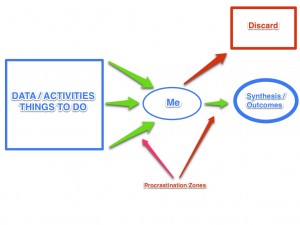Earlier this week, someone sent me the strategic planning survey for a small, culturally focused non-profit organization. It’s a scrappy little place: off the coasts and in a community with a long history of economic battering, and yet they have managed to be successful. This organization isn’t a client, but I know some of the people involved and understand their project goals, and so was flattered to have had my name given to their consultants and to be asked for feedback as they develop a new strategic plan.
Until I was stopped dead in my tracks quite early on by a question about what they can do “to achieve world-class excellence.” Hmmm. (1) Nothing. (2) Should “world-class excellence” even be the goal? What on earth does that mean?
It seems as though this term–“world-class,” or sometimes offered as “world class” without the hyphen–is on the rise (again), particularly in the non-profit world. In the last couple of weeks, it has come up in materials for more organizations than I care to count, all attempting to use it as the ne plus ultra of modifiers to signal “We are awesome!” All of them miss that mark.
There are three core problems with using the term “world-class.” First, if we take it at face value, then most organizations / cities / restaurants / experiences just are not that. That’s not snobbishness; rather, that’s clearly the point: to identify one’s group with the (very few) things in this world that are absolutely outstanding and exceptional. Objectively speaking most things do not rise to that level, and most cities and institutions will not become (rapidly, anyway, or based on the wording in a website or a press release) the must-see destination of the year or the century.
Does that suggest “world-class” is just an expression of an aspiration? Perhaps. But why is that the thing to which one wants to aspire? The second problem with the term is that because it’s what so many people say, it fails the test of how to sell or market something. Don Draper never would have stood for it, you can be sure of that; I can just imagine the “Mad Men” episode in which it might come up. He’d have thought it lazy, not to mention a threat to his business: if you can say the same thing about so many different things, with no meaningfully expressed point of differentiation, then why bother saying anything at all?
As a term, “world-class” offers nothing in the way of insight to the person one is trying to seduce: the average visitor is unlikely to decide to come based on whether you have (or have not) described yourself that way, and journalists probably don’t even see the phrase any more because it’s in such common use. If you want to sell your project or engage someone in thinking about your organization or community, find a description that is organic–something that reflects who and what you really are and where you’re actually headed. People–consumers and journalists alike–are more influenced by descriptions that feel genuine and that engage their imaginations, not by generic terms that can be used by anyone.
And that’s the third problem with the term “world-class,” the problem so deftly addressed in “The Incredibles“: if absolutely everyone is special, then no one is. Or rather, then the word “special” loses most of its meaning and value. It should be ok–more than ok, really; it should be acceptable, comfortable–to be “special” within the community that a particular organization is most concerned with engaging. It’s desirable to want to express that, to tell the world that your project or entity is worthy of support and is contributing value to its community. But that does not make it “world-class” by default.
Especially in the world of culture, it’s easy to find wonderful and charming projects that excel within a particular niche–such as a museum with a very specific kind of collection, or a small performing arts group with a focus on music from a specific period or style. Organizations that adopt the “world-class” mantle actually lose their specialness by embracing terminology that no one finds compelling and that, at the same time, wipes out the descriptive qualities that might help them appeal to both their core audiences and new ones, too. Being “world-class” is harder than simply saying it, and also less meaningful–to the worldly, anyway–than it may appear.




